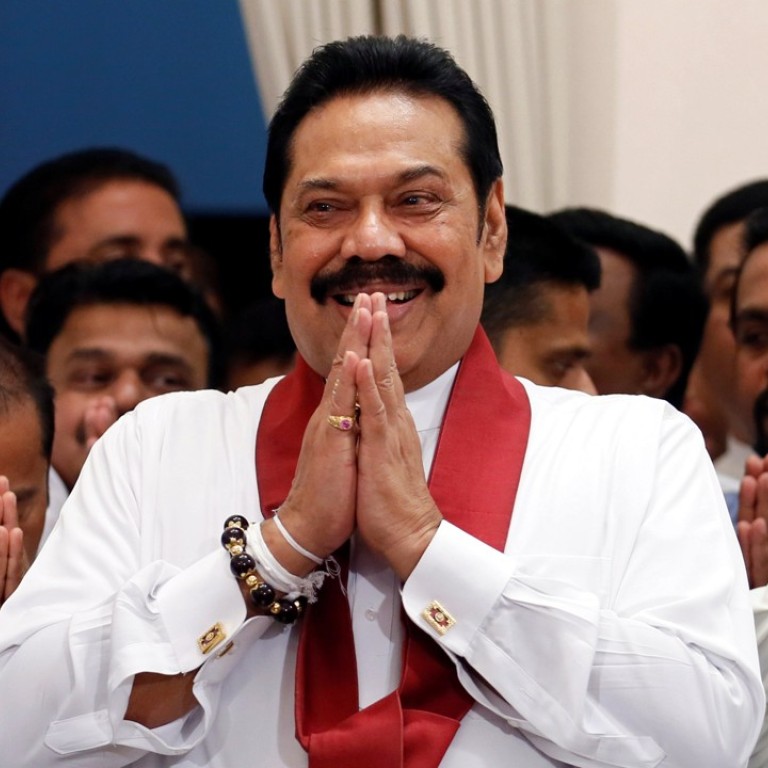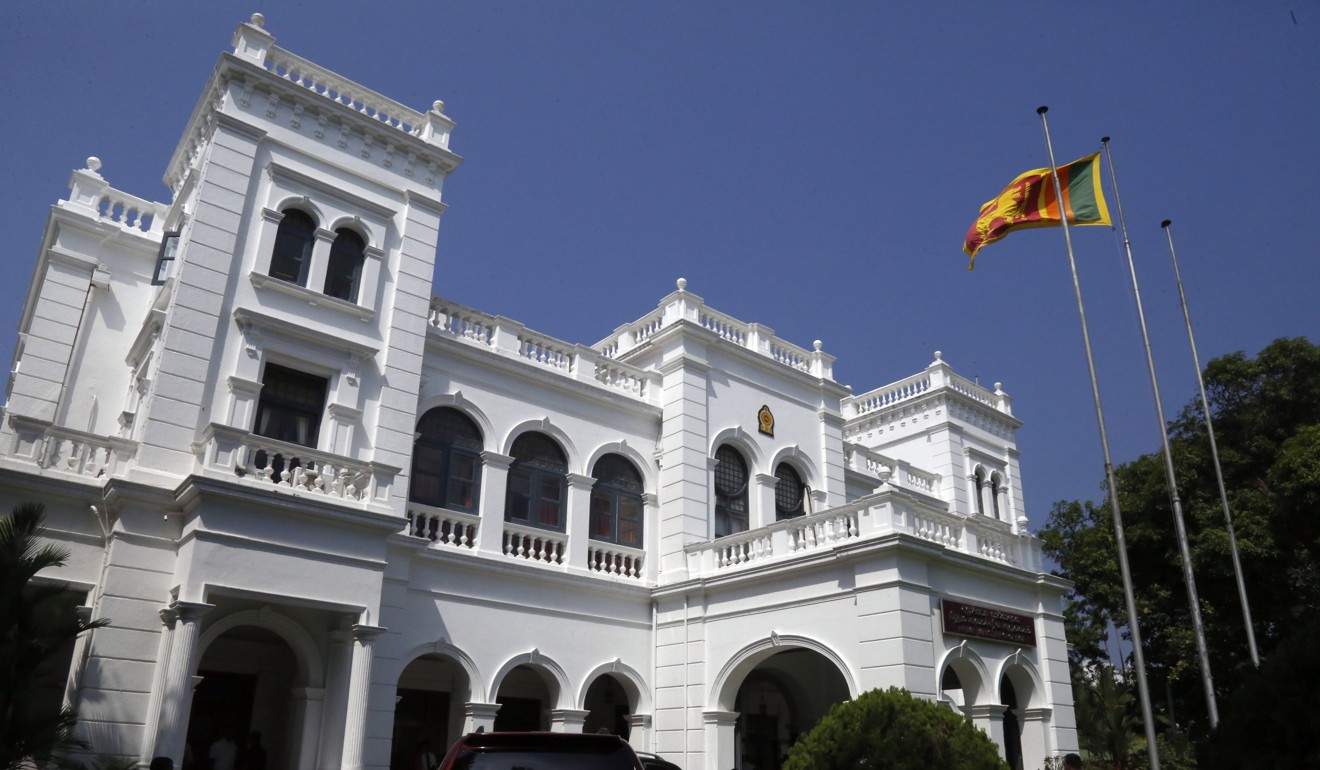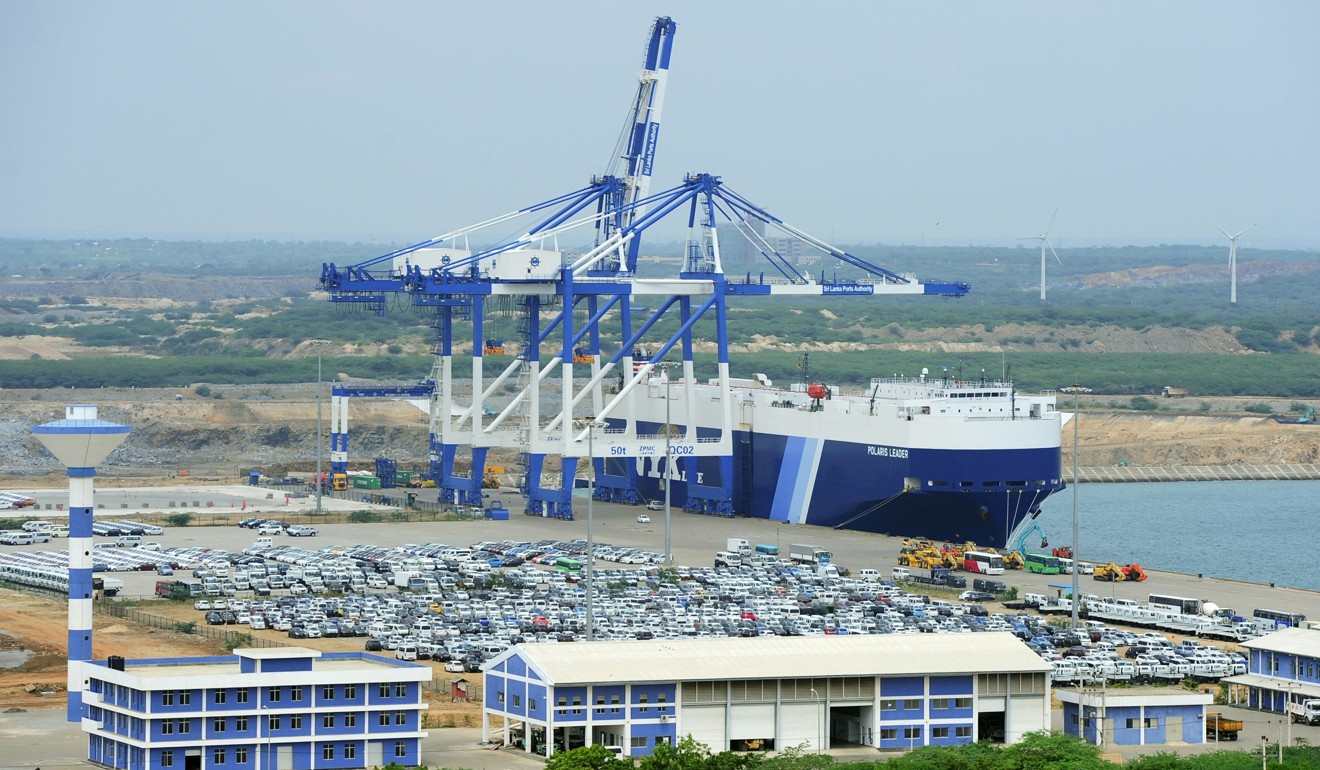
China keeps close watch on Sri Lankan crisis but won’t interfere
- Foreign ministry hopes all sides can resolve their differences through talks
- Former president Rajapaksa seen as ‘close’ to China in previous role
China said on Monday it hoped all sides in Sri Lanka could resolve their differences through talks, as it weighs the possible impact on bilateral ties of the South Asian nation’s constitutional crisis.
Foreign Ministry spokesman Lu Kang said China was paying close attention to the situation in Sri Lanka after its president sacked the prime minister and replaced him with a former leader close to Beijing.
“China will stick to the principle of not interfering in the domestic affairs of other nations,” Lu said in a press briefing on Monday.
“We believe the Sri Lankan government, political parties and people have the wisdom and capability to handle [the situation]. China hopes all sides can resolve the differences through dialogue.”
The constitutional crisis erupted on Friday when Sri Lankan President Maithripala Sirisena sacked Prime Minister Ranil Wickremesinghe and swore in ex-president Mahinda Rajapaksa to replace him.
‘Anti-democratic coup’: Sri Lanka in turmoil as PM Wickremesinghe is sacked and rival Rajapaksa sworn in
Sirisena said he sacked Wickremesinghe because an unnamed cabinet minister was allegedly involved in a plot to assassinate the Sri Lankan president.
Wickremesinghe has said his sacking was illegal and maintains that he is still prime minister, leading to a stand-off between his party and labour unions loyal to Sirisena.
Rajapaksa, who was Sri Lanka’s president from 2005-2015, was seen as close to China. He ushered in billions of dollars of investment from Beijing to rebuild the country following the end of a 26-year war against ethnic Tamil separatists in 2009.

In a sign that Beijing is closely following developments, its envoy in Colombo Cheng Xueyuan met Rajapaksa on Saturday. But he had also previously met with Wickremesinghe on the same day.
Hu Zhiyong, a research fellow at the Institute of International Relations of the Shanghai Academy of Social Sciences, said Sri Lanka was a key nation for China’s strategy in the Indian Ocean.
“The appointment of the new prime minister is helpful to China-Sri Lanka relations, but may not be beneficial to its ties with India,” he said.
Last December, Sri Lanka formally handed over Hambantota Port to the state-owned China Merchants Port Holdings on a 99-year lease, in a US$1.12 billion deal to reduce the country’s debt burden.
Sri Lanka hands over running of Hambantota port to Chinese company
In Sri Lanka’s capital, China is also building a 2.6 square kilometre Colombo Port City, envisioned as a future financial district with skyscrapers and hotels. It is the largest single foreign direct investment in Sri Lankan history – a US$1.4 billion project by the state-owned Chinese engineering firm China Communications Construction Company (CCCC).
In July this year, Chinese President Xi Jinping has offered Sri Lanka a fresh grant of 2 billion yuan (US$287 million).
In August, the United States announced it would grant Sri Lanka US$39 million to boost maritime security as China develops its strategic hold on the Indian Ocean island.

Swaran Singh, an international relations professor at Jawaharlal Nehru University in New Delhi, said Sri Lanka remained a major partner for both India and China, although both had their niche sectors of cooperation.
“Conversely, both China and India have a stake in ensuring that, in this tragic situation, they allow Sri Lanka space and time to resolve matters on their own, as regards to Sri Lankan politicians crossing any red lines,” he said.
Amitendu Palit, a senior research fellow of the Institute of South Asian Studies at the National University of Singapore, said Rajapaksa had long been considered a strong supporter of deeper relations between China and Sri Lanka.
“Although there have been criticisms about Chinese investments increasing ‘indebtedness’ of Sri Lanka, the current government has not walked off from the projects,” he said.
“Rajapaksa’s re-entry though might generate the possibility of some fresh investments.”
Additional reporting by Reuters


